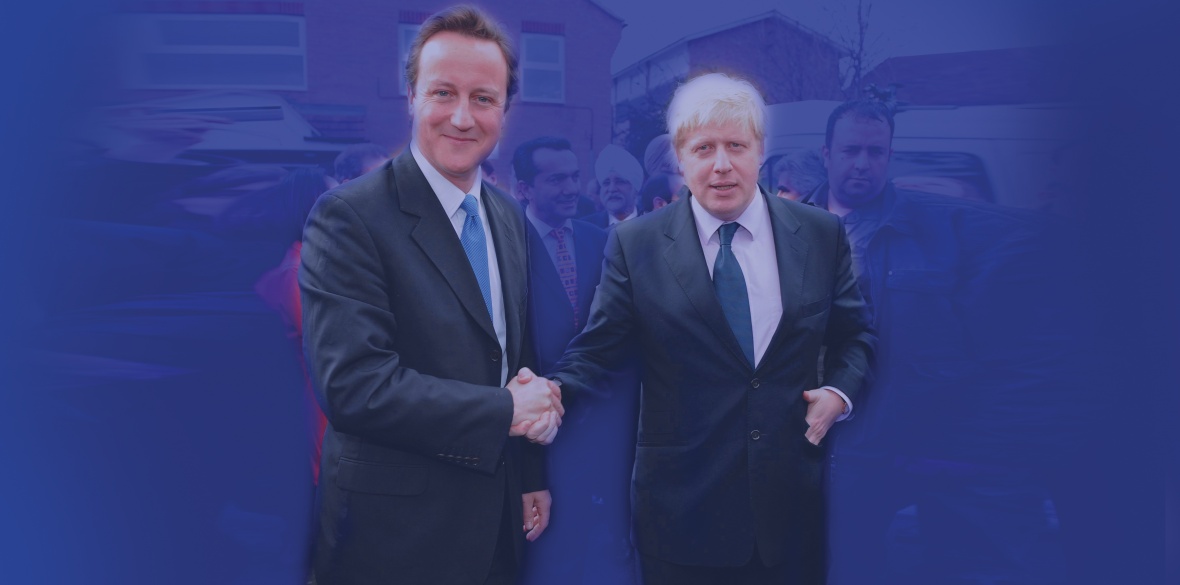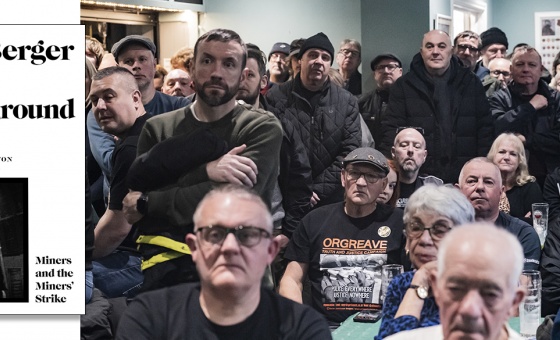This is the last article you can read this month
You can read more article this month
You can read more articles this month
Sorry your limit is up for this month
Reset on:
Please help support the Morning Star by subscribing here
TORY-LED consultancy Public First won an £840,000 contract to run key Covid-19 communications because Boris Johnson was “cautious about who to trust” and needed to be soothed with a firm that was “in line with the Prime Minister’s agenda,” according to court documents.
“A nod and a wink” — that’s how people describe giving a contract to a friend, while not making it too obvious that friendship helped the decision.
But it looks like the government has invented a whole new set of facial expressions, tics and grimaces to make sure top Tory firms get key public contracts, while pretending it isn’t cronyism.
Public First is a PR firm and political consultancy founded by former David Cameron and Johnson adviser Rachel Wolf, with her husband James Frayne, also a former Tory adviser.
They are so close to the Tories that Wolf co-wrote their 2019 election manifesto.
In 2020, as the pandemic took hold, Johnson’s government gave Public First the £840,000 contract to work at the heart of No 10 helping Covid-19 communications.
It got the contract without any bidding or competition. Campaign group the Good Law Project, run by barrister Jolyon Maugham, challenged the no-bid award in court, asking for a judicial review.
Witness statements from top civil servants in response to the Good Law Project’s court action explain how Public First were appointed
Public First was actually hired to work on a key post-Brexit speech by Johnson in February 2020, called the “Narrative Project.”
Johnson wanted to make a big speech on his big “agenda” of “levelling up” and “global Britain.”
Public First was expected to run focus groups to test “the public mood” for Johnson’s big pre-Budget speech.
In fact the speech never happened, as the pandemic overtook it.
But the government just changed its “discrete” pre-speech Narrative Project contract into the much bigger Covid-19 communications work. Neither contract involved any bidding or competition.
The witness statement from director for government communication Alex Aiken, a top civil servant, explains how Public First got the Brexit job, which led to it getting the larger Covid-19 job.
Aiken says he had a meeting with Lee Cain, who was Johnson’s director of communications, to discuss which firm should help Johnson write his big speech.
Cain was recruited to No 10 from the Vote Leave campaign as a political appointment.
Aiken himself was a civil servant — in theory non-political — but also came from a solidly Tory background.
Aiken had been a top Conservative Party official, leading Tory campaigns from 1993-2000 and after that head of communications for super-Tory Westminster Council.
The story seems to be that Cain and Aiken, themselves quite Tory, agreed that the new Tory government (which was elected after a decade of Tory-led government) was so nervous about being a “new” government it needed a Tory-led consultancy to do the research.
Aiken says: “This was a new administration with new advisers and they were cautious about who to trust. It was to be a very important speech, so the research needed to go well.”
Aiken says Cain argued “it might go better with someone familiar with the government’s agenda, such as Public First.”
Aiken agreed that “their experience meant that they would be able to do the work in line with the Prime Minister’s agenda.”
Aiken justifies choosing a Tory-linked consultancy by saying: “I was trying to build up a relationship of trust with the new administration and I was prepared to work with the grain of what is being asked for. Discretion is an important factor.”
It seems the sensitive, nervous Johnson could only trust Aiken — who had been a Tory party head of campaigns — if he agreed to appoint Tory-led firms to key positions.
So nobody says “hire a Tory firm” — but they do say “familiar with,” “who to trust,” “in line with,” “with the grain,” “discretion.” Those are the nods and winks.
Aiken in turn “suggested” to the next civil servant in the management chain, the “head of insight,” that Public First be hired.
Aiken reassures us that despite all these “suggestions,” there was no “instruction” to hire Public First — it just emerged with the job at the end of the day.
When all these nods and winks filter down, some of the subtlety wears off.
The “head of insight” put it more bluntly in an email to her colleagues.
She says: “This agency — Public First — is the one who are Dom Cummings/Lee Cain’s mates and hence getting all our work with no contract BUT are also spending much money on doing all our ridiculous groups.”
Does it matter? The problem with cronyism goes beyond public cash going to political friends.
Public First’s job was running focus groups about how people’s understanding of Covid-19 and using that to shape health messages.
This is vital stuff because public information campaigns which could change behaviour were one of the “primary tools” against the virus.
But Public First were not health experts. They were politically close to the government instead of being experienced in public health.
No 10 took control of Covid-19 communications from the Department of Health, then used favoured contractors to create those communications.
The court papers show civil servants were very worried about this. One official called it, “Tory-Party research agency tests Tory-Party narrative on public money.”
Another complained: “I have genuine concerns about the way in which they MIGHT be spinning stuff coming out of focus groups — way, way too close to No 10 to be objective.”
The narrowly focused, politically directed public information campaign is one of the reasons we have a high death toll.
The public health campaign is thin. The government was repeatedly reluctant to promote firm, early action, preferring later, half-hearted lockdowns and the weak public information campaign reflects.
Health advisers repeatedly told the government to use what are called “co-production” methods.
This is an established health communication approach where all affected communities are involved in drawing up and delivering health advice.
This would include specific outreach designed with minority communities, those with English as a second language, or younger people.
However, this kind of “politically correct” health campaign was not used by the government, which was relying on politically linked, non-health comms advisers instead of health experts.
Instead we got less successful generic health campaigns that lacked depth.









